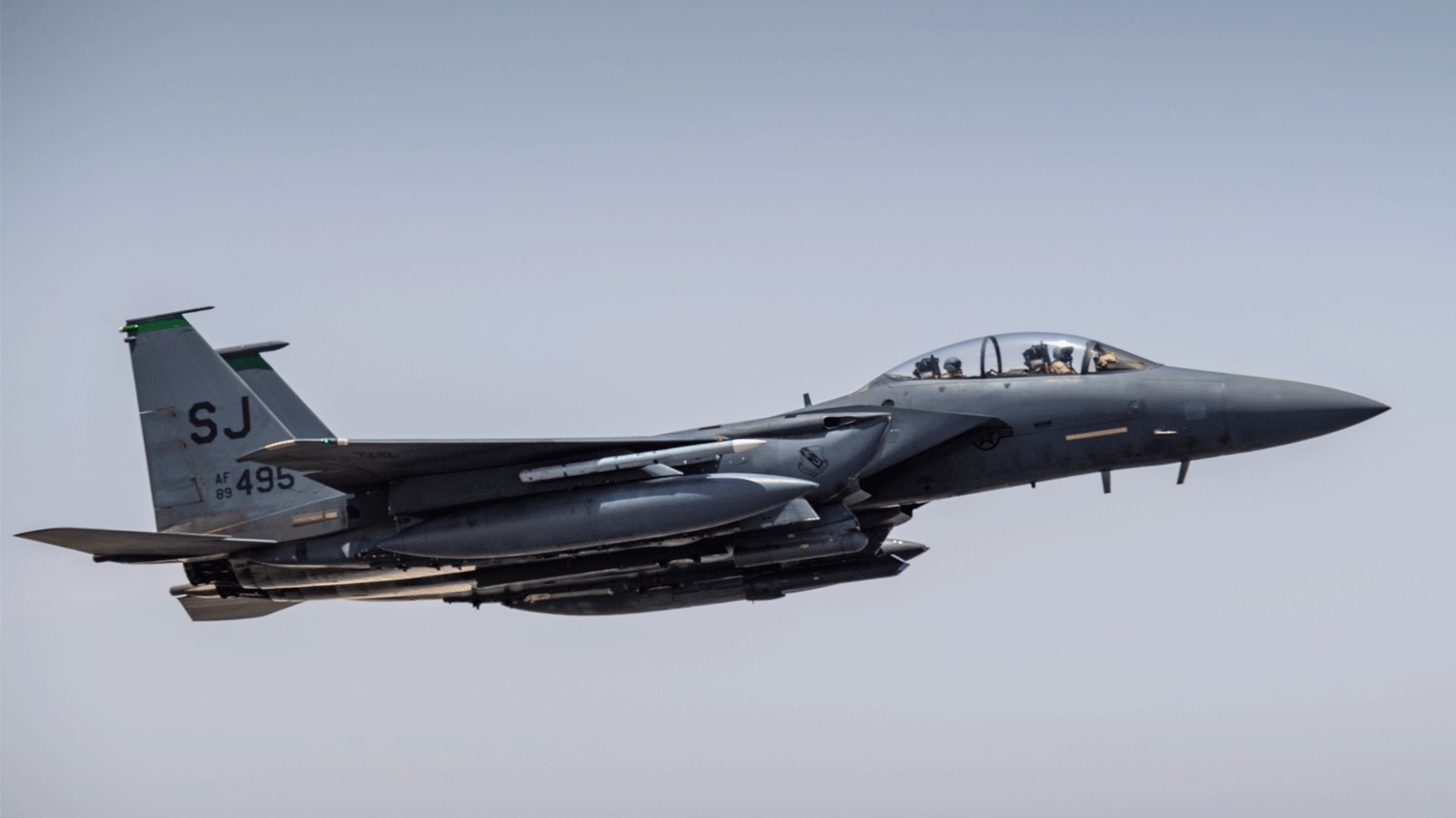US Boosting Regional Forces, as Israeli-Iran Tensions Grow over Assassinations
Austin “stressed that the unprecedented scale of U.S. support for Israel since October 7, should leave Iran, Lebanese Hizbollah, and other Iranian-backed terrorist groups with no doubt about U.S. resolve.”

WASHINGTON DC, United States (Kurdistan 24) – The U.S. Defense Department announced late on Friday that it was significantly boosting its military presence in the Middle East, amid the possibility that Iran is preparing retaliation against Israel for two high-profile assassinations, one of them on Iranian soil.
The U.S.military build-up is focused on providing more air defense support, aimed at shooting down drones and missiles. But it also includes another squadron of fighter jets, as well as a number of naval vessels to provide what Deputy Pentagon Press Secretary Sabrina Singh described as a “broad range of capabilities.”
Iran tried earlier this year to attack Israel, but its April 13 assault did little damage, as the U.S. helped to shoot down the Iranian weapons. Indeed, in a coordinated effort, orchestrated by the U.S., Jordan, Saudi Arabia, and the U.A.E. assisted as well.
Iran’s current threat of retaliation may involve attacks by Iranian proxies and partners, including Lebanese Hizbollah, the Houthis in Yemen, and the pro-Iranian militias in Iraq and Syria–what it calls an “Axis of Resistance.”
The U.S. deployment is meant to deal with threats from those elements as well.
Israeli Assassinations
Iran’s threat of retaliation was triggered by Israel’s assassination of two significant figures.
One was Fuad Shukr, a Hizbollah commander in Lebanon, who was killed on July 30. Shukr had worked with Iran for decades, going back to the 1980s, when he was involved in the bombing of U.S. and French troops in Lebanon, which had deployed to Beirut as a peacekeeping force.
In that Oct. 27, 1983, attack, which was actually state-sponsored, involving Iran and Syria, 241 U.S. Marines were killed, along with 58 French troops.
The U.S. subsequently designated Shukr as a Specially Designated Global Terrorist, and the State Department’s Rewards for Justice program offered $5 million for information leading to his arrest.
Following Shukr’s assassination last Tuesday, early on Wednesday, the following day, another significant political figure was assassinated, this time in Iran itself.
Before dawn on July 31, Hamas’s political leader, Ismail Haniyeh, was killed in Tehran. He was there to attend the inauguration of Iran’s new president, Masoud Pezeshkian.
Later that day, Iran’s Supreme National Security Council held an emergency meeting. The Supreme Leader, Ayatollah Ali Khamenei, gave an order to attack Israel during that meeting, The New York Times reported.
“We see avenging [Haniyeh’s] blood as our duty,” Khamenei said in a public statement, “because it happened on the territory of the Islamic Republic,” the Times said.
The next day, on Thursday, Khamenei met with senior figures in several Iranian-backed groups, including the pro-Iranian militias in Iraq, to discuss Iran’s response to Haniyeh’s assassination.
Those figures were all in Tehran, as Haniyeh had been, to attend Pezeshkian’s inauguration.
The way the assassination was carried out was particularly disturbing to Iranian authorities. It was caused by a bomb placed in the government guest house in which Haniyeh was staying, and it represented a “huge and humiliating security breach,” the Times said.
“More than two dozen people, including senior intelligence officers, military officials, and staff workers” at the guest house were arrested, the Times reported on Saturday, as Iranian authorities pursued their investigation.
U.S. Discussions with Israel
The Pentagon announcement that it was beefing-up its military presence in the region followed two key discussions between U.S. officials and their Israeli counterparts.
The first was a conversation on Thursday between U.S. President Joe Biden and Israeli Prime Minister Benjamin Netanyahu.
“The President reaffirmed his commitment to Israel’s security against all threats from Iran, including its proxy terrorist groups Hamas, Hizbollah, and the Houthis,” according to the White House readout.
Biden “discussed efforts to support Israel’s defense against threats,” including “ballistic missiles and drones,” while he also “stressed the importance of ongoing efforts to de-escalate broader tensions in the region” it said.
When later questioned by journalists, Biden remarked that the killing of Haniyeh “doesn’t help” efforts to secure a ceasefire in Gaza.
On Friday, U.S. Secretary of Defense Lloyd Austin spoke with Israel’s Minister of Defense, Yoav Gallant.
Austin and Gallant discussed “t+-he destabilizing threats posed by Iran, its partners, and proxies,” according to the Pentagon readout of their discussion.
Austin “reiterated ironclad U.S. support” for Israel’s defense, even as he “highlighted that further escalation is not inevitable and all countries in the region would benefit from a de-escalation in tensions, including through completing a Gaza ceasefire and hostage release deal,” it said.
But Austin “also stressed that the unprecedented scale of U.S. support for Israel since October 7,” when Hamas launched its bloody cross-border assault, “should leave Iran, Lebanese Hizbollah, and other Iranian-backed terrorist groups with no doubt about U.S. resolve.”